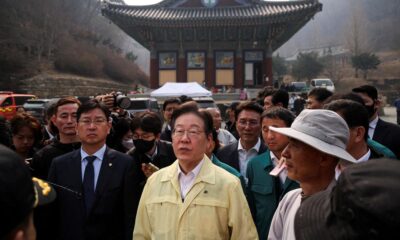COLOMBO
Amid ongoing queries from the political Opposition and media regarding Sri Lanka’s recent defense sector Memorandum of Understanding (MoU) with India, the government has advised those seeking more information to utilize the country’s Right To Information (RTI) Act.
Speaking at a press conference earlier this week, Cabinet spokesperson Nalinda Jayatissa stated that certain contents of the MoU cannot be disclosed without India’s consent. The political Opposition, including the main Opposition bloc Samagi Jana Balawegaya (SJB or United People’s Power), has accused the Anura Kumara Dissanayake administration of “secrecy” and demanded that the MoUs signed with India be presented in Parliament.
The MoU related to the defense sector was one of seven agreements signed during Prime Minister Narendra Modi’s visit to Sri Lanka from April 4 to 6. Other agreements covered areas such as energy cooperation, digital initiatives, and health. Foreign Secretary Vikram Misri mentioned during the visit that the defense sector MoU serves as an “umbrella agreement” to facilitate ongoing defense sector collaboration in a more “structured” manner.
In his remarks during the visit, PM Modi expressed gratitude to President Dissanayake for his consideration towards India’s interests. He highlighted the shared security interests between the two countries, emphasizing the interconnected and interdependent nature of their security.
Retired civil servant Austin Fernando, who has previously served as Secretary to the Ministry of Defense and as Sri Lanka’s High Commissioner to India, noted that Indian defense interests were evident in PM Modi’s statements. He raised questions about Sri Lanka’s stance on concepts like Akhanda Bharat and its alignment with security and defense relationships involving India, Russia, the United States, and Israel. Some commentators suggested that the MoU signaled a potential departure from the government’s previously non-aligned foreign policy.
The scrutiny of the MoU began in Sri Lanka even before Mr. Modi’s arrival in Colombo. Ahead of the state visit, Indian media reports hinted at a significant defense agreement with Sri Lanka, prompting skepticism among commentators in Colombo.
The attention on the MoU has only increased following the visit. President Dissanayake, addressing a rally in the town of Galle after Mr. Modi’s visit, clarified that the defense MoU with India formalizes ongoing joint operations and training sessions. Foreign Minister Vijitha Herath specified that it is a non-binding MoU, not a pact.
An anonymous official source familiar with the bilateral discussions on the MoU reassured that Sri Lanka has no cause for concern. The source acknowledged past issues stemming from India’s interventions but emphasized the need to focus on current strategic realities.
A recent editorial in the Sunday Times highlighted uncomfortable questions raised by the MoUs related to the Energy Hub proposal in Trincomalee and defense cooperation following Mr. Modi’s visit. The newspaper urged the government to disclose the MoUs to the public.
It remains unclear whether the MoU addresses the sensitive issue of permitting Chinese research vessels, which has been a concern for Delhi. Reports of a joint naval exercise between Pakistan and Sri Lanka being canceled were swiftly denied by the Sri Lankan Ministry of Defense.
Published – April 25, 2025 03:45 am IST








































